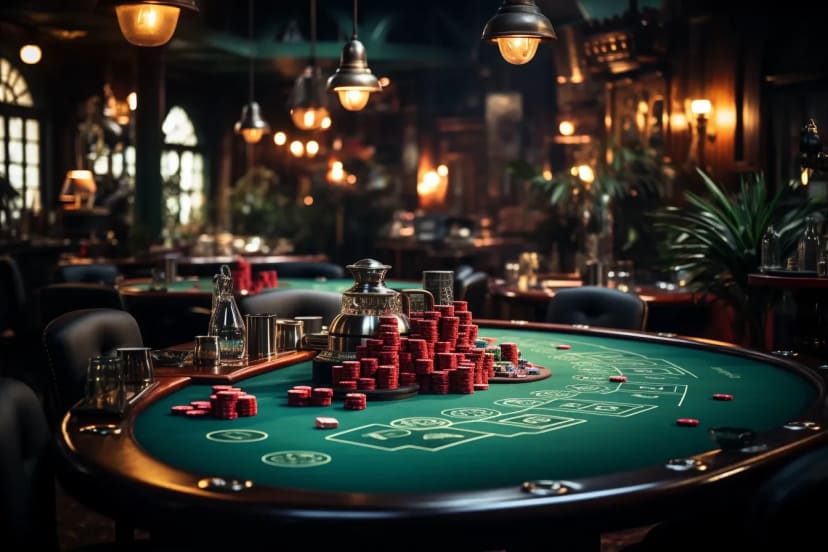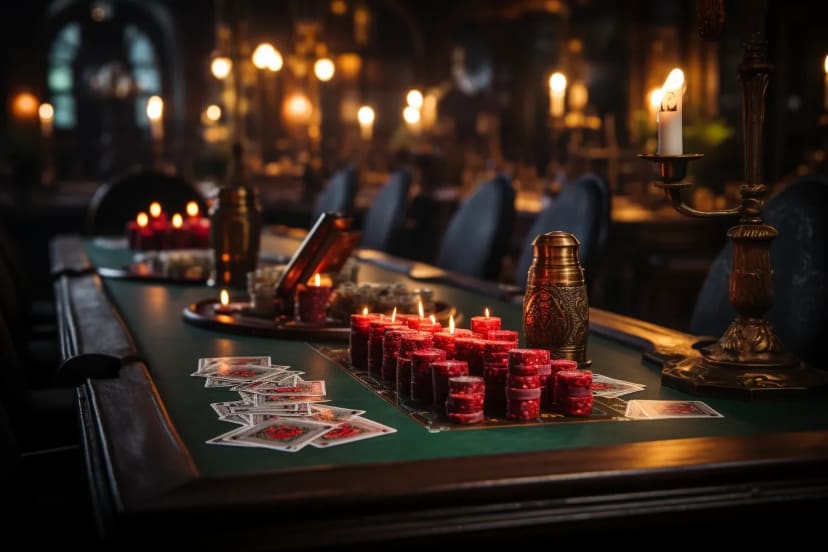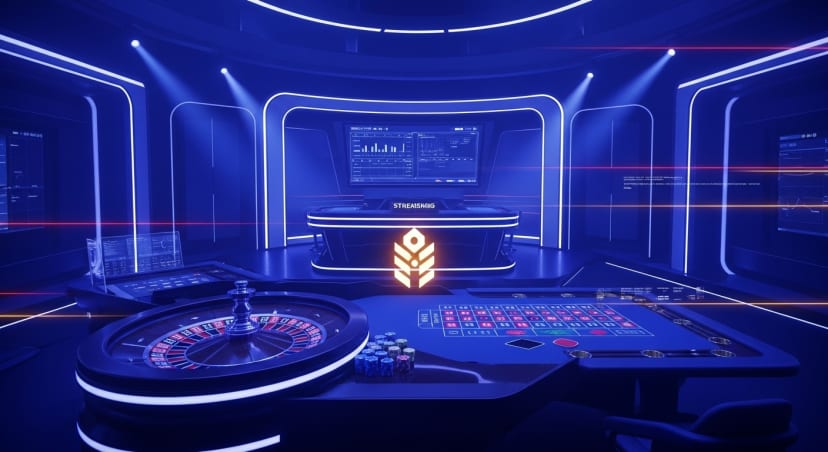While many blackjack players see it as a pesky add-on, some consider blackjack insurance a lifesaver when luck isn't on their side. This makes blackjack insurance one of the most debated topics in the gambling world. So, if you're new to blackjack, this guide will give you the lowdown on blackjack insurance and why it's usually best to steer clear. Let's dive in!
What Exactly is Blackjack Insurance?
Blackjack insurance is a side bet offered to players if the dealer's face-up card is an ace. As the name implies, it's meant to safeguard your bet if the dealer completes a 'blackjack'. Typically, an insurance wager is half of your original bet and pays out at 2 to 1. In simpler terms, the maximum you can bet on insurance is half of your main stake.
This side bet is only settled after the dealer reveals their second card. If it's a king, queen, jack, or ten, the dealer has a blackjack. In this scenario, you win your insurance wager. If the dealer doesn't have a blackjack, you lose your insurance bet, but you can still win your original stake in the hand.
When Should You Consider Blackjack Insurance?
While theoretically possible, the conditions under which taking insurance is a good idea are extremely rare. Some strategists suggest it might be worth considering if the blackjack game you're playing has specific rules, like the dealer standing on a soft 17. Furthermore, you'd typically need a very strong hand yourself, like 20, 19, or 18, to even contemplate it. Otherwise, your hand might not stand a chance against the dealer's potential blackjack.
- Imagine you're at your favourite live online casino in Singapore and place a $5 bet on blackjack. If the dealer shows an ace, you might be offered insurance. The cost for this would typically be $2.50 (half your bet). If the dealer has a blackjack, you win $5 (2 to 1 on your $2.50 insurance bet), effectively cancelling out your initial $5 loss. However, if the dealer doesn't have a blackjack, you lose the $2.50 insurance bet and still play out your original $5 hand.
- After that, you're dealt a nine or Jack of Hearts, and an ace is the dealer's upcard.
- Now you decide to take $2.5 insurance, which is half your original bet.
- Next, the dealer reveals ten as his/her second card. In return, the insurance bet will payout 2 to 1 and break even on your hand.
When It's Necessary to Take Insurance
Taking insurance during a blackjack game can be irresistible if an ace the dealer's upcard. There is a 1 to 3 probability that the subsequent card has a 10-value card in that case. But unless you're counting cards, it's not worth risking your hard-earned money on blackjack insurance. Mathematically, taking blackjack insurance will result in losses in the end.
You can generally win your insurance wager only if the dealer's hole card is a 10-value card. As said before, you must be an expert card counter to know for sure the amount remaining in the deck. So, if you're green about counting cards, stay away from this sucker bet.
Blackjack Insurance, Odds, Price, and House Edge
So, what are the blackjack insurance odds? The probability of a blackjack being dealt by the dealer when playing a regular table game is 9:4. However, the odds for a player to win an insurance wager aren't similar. They may vary depending on the number of decks and 10-point cards already dealt. In short, the odds are stuck against the punter.
When it comes to the price, the player can only win if the dealer's facedown card is a 10. In this case, the insurance payout is 1:1. If the player's hand is a blackjack, the payout is 3:2 or $3 for every two bets or 1.5 times the wager.
Lastly, a single deck blackjack insurance has a steep house edge of around 5.8%. But it's worth noting that you're likely to play modern blackjacks with 6 to 8 decks. In such cases, the house edge can hit 7.5%.
Blackjack Insurance: Final Advice
If you're an expert card counter, then blackjack insurance can be very profitable. Card counters have a rough idea of the number of 10-point cards remaining in a deck. Also, the payout is handsome if you already have a blackjack in hand. Bust, as said, the odds are always against the player. What's worse, taking insurance when playing multi-deck blackjacks will expose you to a painfully high house edge.
FAQ
What is Insurance in Online Live Blackjack?
In online live blackjack, "Insurance" is a side bet offered when the dealer's face-up card is an Ace. It's essentially a wager that the dealer has a blackjack. If the dealer does have blackjack, the insurance bet pays out at 2:1.
When Should You Consider Insurance in Live Blackjack?
Consider taking insurance in live blackjack if you have a particularly strong hand, or if you're employing card counting techniques and the count suggests the dealer is likely to have a blackjack. However, be aware that insurance generally favours the house, so proceed with caution.
What is the Cost of Insurance in Live Blackjack?
Insurance in live blackjack usually costs half of your initial wager. For example, if your initial bet is $10 SGD, the insurance bet will be $5 SGD.
Is it Possible to Win Both Your Initial Bet and the Insurance Bet in Live Blackjack?
Yes, it's possible to win both your initial bet and the insurance bet. If the dealer has a blackjack, and you also have a blackjack or a strong hand, you'll win the insurance bet. Your original bet may result in a push (tie) or a win, depending on the strength of your hand compared to the dealer's.
Is Insurance a Good Bet in Live Blackjack?
Insurance is generally considered a poor bet in the long run. It's a separate wager with its own odds, and statistically, the dealer is less likely to have a blackjack than the odds offered by the insurance bet suggest. This makes the insurance bet more advantageous to the casino in Singapore.


















